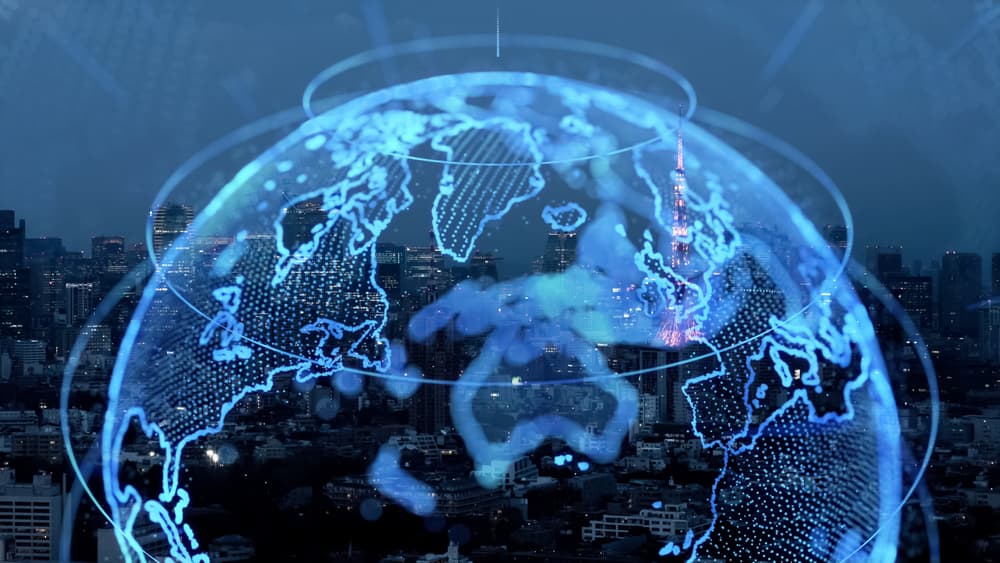The Role of Global Strategic Communications in Diplomacy

Professionals leverage global strategic communications in various business and marketing situations, but diplomacy is one area where it is most impactful. Digital communication channels have forever changed strategy for governments in the 21st century, with the internet allowing every communication—from the most extensive policy statement to the opinion of an elected official on any issue—to reach every corner of the globe instantly.
This global reach has led to greater opportunities for communications teams to reach a worldwide audience. Conversely, it poses significant challenges in combating disinformation. The much faster-paced communications field also presents various career options for graduates with expertise in global strategic communications seeking careers working for government agencies.
In addition to the public sector, there are opportunities to work for private businesses and nonprofit organizations with a presence in countries outside the United States. While the messages differ in each case, the need is the same: the ability to craft communication that resonates with people across all cultures.
Global Strategic Communications Supports Improved “Information Statecraft”
While the digital age has changed how and when messages are delivered, the overall goals for diplomacy and strategic messaging at the national level remain the same. Global strategic communication shapes narratives and perceptions on the world stage. Governments and international organizations invest substantial resources to craft messages that align with strategic objectives. A well-executed communication strategy can influence public opinion, garner policy support, and project a nation’s positive image to the global community.
However, in the digital age, communication is more critical than ever in “information statecraft,” a term applied to diplomatic communications by the United Kingdom in its recent report on strategic communication as a tool of global influence. In that report, UK officials summed up the current situation faced by diplomats and heads of state worldwide.
“The global information ecosystem is changing fast. In an increasingly interconnected world, communication is effectively borderless,” they wrote. “Digital newspapers are read around the world, and social media posts do not respect national boundaries. While technological innovation continues to bring new opportunities which can be harnessed for the public good, it also contributes to the spread of misinformation and disinformation.”
Communications professionals master the art of crafting messages for worldwide audiences. With this expertise, they can engage people from diverse cultures through a variety of communication channels. Using a global mindset to make decisions, they are prepared to manage these challenges and maximize the opportunities.
What Is the Purpose of Diplomacy in the 21st Century?
Specific standards have always applied to diplomacy and still do today. When nations navigate the intricacies of diplomacy using communications, they seek to resolve conflicts and build bridges between diverse cultures. These goals remain the same in the 21st century.
However, digital innovations have transformed how nations approach communications, creating a more complex landscape. Even without the benefit of promotion, a social media post or online press release can now be read worldwide, influencing people’s views of events and policies. This leads to national leaders becoming more proactive in approaching global communication.
In the UK report, for example, global strategic communications are a critical component of various “levers of statecraft,” including diplomacy and economic and soft power. Coined by political scientist Joseph Nye, “soft power” emphasizes the ability to attract and persuade rather than coerce through military might. They credit strategic communication with delivering “tangible benefit to our democracy, international standing, trade and tourism.”
In the United States, the Under Secretary for Public Diplomacy and Public Affairs focuses on communication strategies that “expand and strengthen the relationships between the people of the United States and citizens of other countries,” a process that involves consideration of cultural differences.
Within this office is the Global Engagement Center, which focuses on identifying and countering foreign and non-state propaganda and disinformation. The center uses a data-driven approach to address “foreign adversaries’ attempts to undermine U.S. interests using disinformation and propaganda.”
The UK and the U.S. are examples of countries using global strategic communication. The effort to forge a better understanding between citizens of different countries and combat disinformation is crucial to solving global problems such as human rights, poverty, food security, immigration, business ethics, and climate change.
Public health also benefits. The COVID-19 pandemic underscored the critical role of global communication in diplomatic efforts. Nations grappled with the need to provide accurate information, address misinformation, and coordinate international responses. Effective communication has fostered collaboration among countries, shared best practices, and mobilized resources to combat the global health crisis.
Strategic Communications Offers Other Benefits to Nations
Private businesses use strategic global communication to market products and build a brand image while considering cultural differences and values. For example, Apple sells its products internationally and has supply chain operations in 43 countries. McDonald’s has restaurants in 38,000 locations in more than 120 countries. Coca-Cola, started by an Atlanta pharmacist in 1886, is now sold everywhere except Cuba and North Korea.
As with private business, there can be economic benefits to strategic communications for government agencies, as well. In the UK, the GREAT Britain marketing campaign that started in 2015 is given credit for bringing 4 billion pounds (more than $5 billion) in economic benefit to the country. The campaign encouraged people worldwide to visit, study, and do business with the UK.
Better communications also can build stronger trust with both citizens within a nation and those living in other countries. In a report on government marketing and communication efforts, Deloitte reported that governments focus on using communication to create more transparency by “leveraging people-centric marketing and communication strategies.” They also advocate using technology to create targeted communications that speak more clearly to people of different demographics or cultures.
The University of Florida Master of Arts in Mass Communications
The University of Florida’s College of Journalism and Communications prepares people to excel working for government agencies, private businesses, and non-profits through its Master of Arts in Mass Communication degree with a concentration on Global Strategic Communication. Students learn the best practices for using strategic communications in diverse careers and contexts, including diplomatic communications that create a better understanding between political leaders and citizens of nations around the world.
The program attracts those motivated to hone their communication skills to reach people across national borders and cultural differences. Students who study global strategic communications believe in the power of creating transparency and trust through communications, leading to a world where people join together to solve complex global challenges.
Posted: March 4, 2024
Category: UF CJC Online Blog
Tagged as: diplomacy, mass communication, Online Learning


